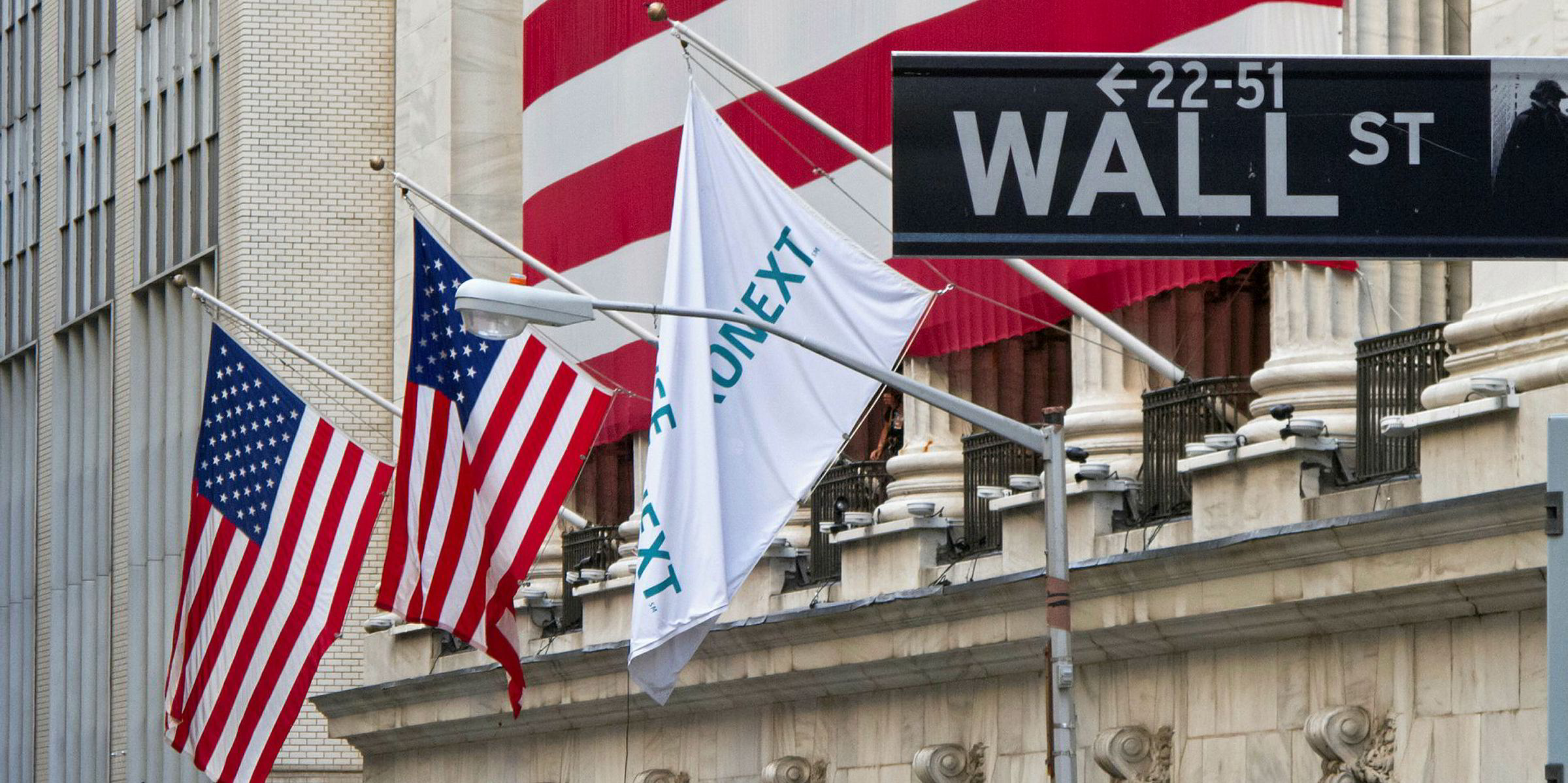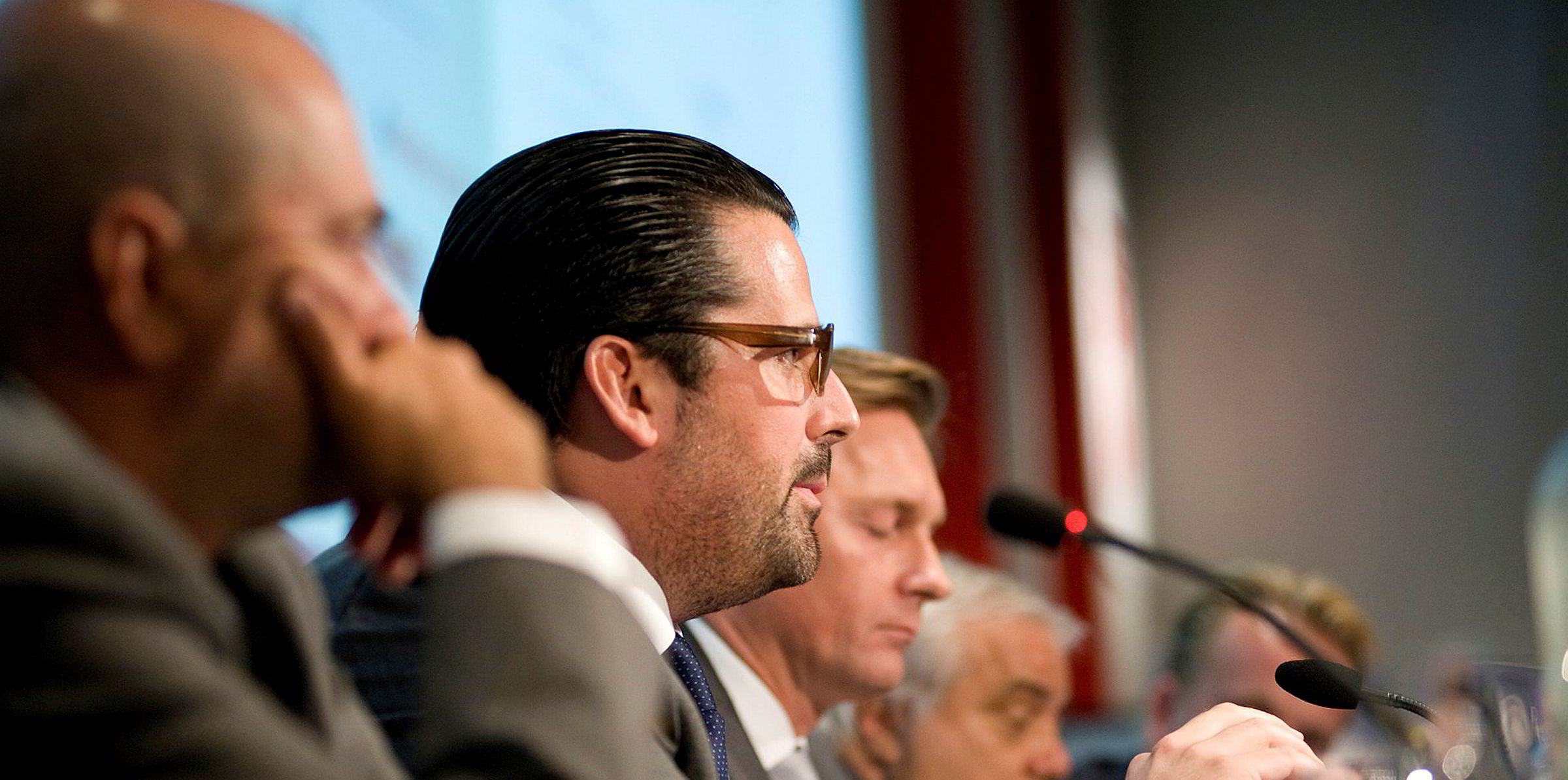A mainstream shipping initial public offering has not sold in more than five years in New York. And while equity sales by already-listed shipowners are possible, they are relatively rare.
But if selling shares does not make sense in the current climate, buying them back does.
That was the consensus of various finance experts assembled for Capital Link’s New York Shipping Forum, held in webinar form last week.
Or near-consensus at least. That is because even the buying back of shares has its doubters as the best corporate strategy for shipping stocks that are already lacking in scale and trading liquidity.
Thus, while Jefferies investment banker Douglas Mavrinac said company purchases of their own shares “make a lot of sense right now” and “are the right thing to do” with prices well below net asset values (NAVs), even he could not help including a caveat.
“Theoretically you buy back all the shares you need to until you get back to NAV and then you go private if you need to – but liquidity is always a question,” Mavrinac said.
“And so you’re left with buying back all that you can without reducing the float [of available shares] too much.”
Mavrinac drew quick agreement from counterpart Loli Wu of Bank of America, who said the poor trading liquidity of many owners is a reason to think twice.
“You have to look at how much poor trading liquidity contributes to the undervaluation of a share, and do you exacerbate the situation by overdoing the buy-back? That’s why I’m a little more neutral on buy-backs,” Wu said.
Yet equity analysts are often big boosters of buy-backs and Randy Giveans — Jefferies’ top man on the research side — explained to TradeWinds following the conference why he is not deterred by the liquidity question.
“Some people point to the negative impact that share buy-backs can have on trading liquidity, but I do not think that is a valid argument, especially when shares are trading at very attractive valuations,” Giveans said, citing metrics such as price to NAV and price to earnings multiples.
As an example, Giveans cited Greek boxship owner Danaos Corp’s recent decision to more than treble the size of its stock buy-back programme to take in $31m of shares in large blocks from two holders: lender Royal Bank of Scotland and shipowner George Economou’s Sphinx Investment.
“The shares repurchased represented 17.5% of the outstanding shares, but notably do not affect the trading liquidity as the holders were not ‘natural’ holders,” Giveans said.
“They acquired the shares via debt-for-equity swaps a few years ago or do not actively trade the stock,” he added, alluding to a financial restructuring undertaken by the boxship owner.
Giveans argued that the Danaos case is far from an outlier.
“This is the case with many shipping companies with small trading liquidity,” he said.
“So if the shares repurchased are from private equity players, banks or others who are not true equity investors that actually trade the stock, there will likely be no impact to liquidity. This is why many companies try to repurchase blocks of equity from large, stagnant holders.”
There is another reality to be gleaned from trading numbers compiled by Jefferies at TradeWinds’ request.
Most shipowners trade so lightly that even if they do damage their turnover through buy-backs, the result is not a game changer.

For example, many large hedge funds say they generally cannot take a stake in a company unless it turns over at least $10m-worth of shares in a given day.
Only six of the 30 shipowners under Jefferies’ coverage in the US met that standard for the prior month: Kirby Corp at $29.75m; Golar LNG at $28.35m, Scorpio Tankers at $15.73m, Frontline at $12.12m, Euronav at $10.62m and DHT Holdings at $10.37m.
In contrast, nine owners traded below $1m per day, including some well-known names: Tsakos Energy Navigation, Genco Shipping & Trading, Safe Bulkers, Diana Shipping and Navigator Holdings.
“And perhaps, more importantly, the average 30-day trading volume is about $5m, and the median is only $1.8m,” Giveans said.
“So even if the buy-backs happen via tenders or open market purchases and the trading liquidity is reduced, does it really matter if a company’s average trading volume is decreased from $2m to $1.5m? The answer is a resounding no.”









